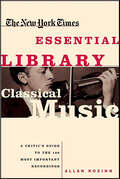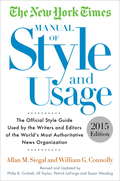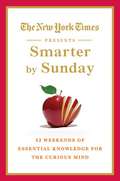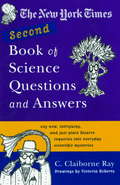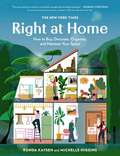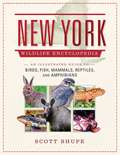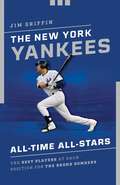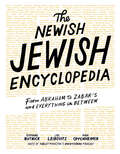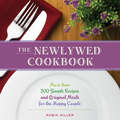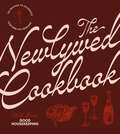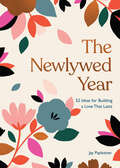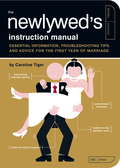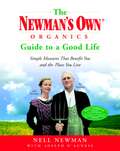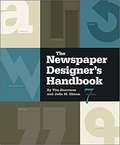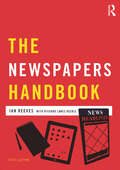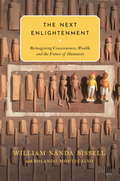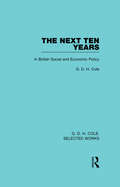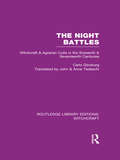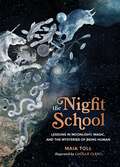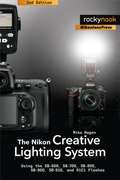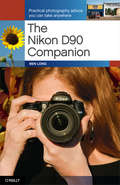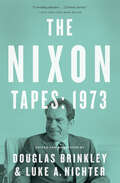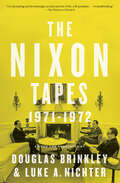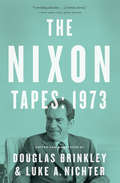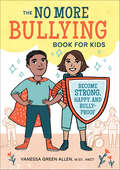- Table View
- List View
The New York Times Essential Library: Classical Music
by Allan KozinnA dazzling appraisal of the definitive classical music performances available todayFor classical music lovers, there is nothing more beguiling and exciting than the range of technique and emotion that can capture or transform the great works in the hands of a conductor and musicians. But with hundreds of recordings released every year, discovering the jewels is a challenge, for newcomers as well as for connoisseurs.New York Times classical music critic Allan Kozinn offers the ultimate collector's guide, packed with a rich history of the composers and performers who stir our souls. From Bach's eloquent Goldberg Variations performed by master pianist Glenn Gould at the beginning and end of his career in startlingly different interpretations, to a lyrical performance of Rimsky-Korsakov's Scheherezade conducted by Kiril Kondrashin shortly after his defection from the Soviet Union, Kozinn places each work in the greater context of musical development and stretches the listener's understanding of each pivotal composition. These original essays on the one hundred greatest recorded classical works provide both practical guidance for building a library and deep insight into the transcendent power of music itself.
The New York Times Manual of Style and Usage, 2015 Edition
by William Connolly Allan M. SiegalThe premier source for journalists, now revised and updated in an exclusive e-book edition. Does the White House tweet? Or does the White House post on Twitter? Can "text" be a verb and also a noun? When should you link? For anyone who writes--short stories or business plans, book reports or news articles--knotty choices of spelling, grammar, punctuation and meaning lurk in every line: Lay or lie? Who or whom? That or which? Is Band-Aid still a trademark? It's enough to send you in search of a Martini. (Or is that a martini?) Now everyone can find answers to these and thousands of other questions in the handy alphabetical guide used by the writers and editors of the world's most authoritative news organization. The guidelines to hyphenation, punctuation, capitalization and spelling are crisp and compact, created for instant reference in the rush of daily deadlines. The 2015 edition is a revised and condensed version of the classic guide, updated with solutions to problems that plague writers in the Internet age: · How to cite links and blogs · How to handle tweets, hashtags and other social-media content · How to use current terms like "transgender," or to choose thoughtfully between "same-sex marriage" and "gay marriage" With wry wit, the authors have created an essential and entertaining reference tool.
The New York Times Presents Smarter by Sunday: 52 Weekends of Essential Knowledge for the Curious Mind
by New York TimesA handy, smaller, and more focused version of our popular New York Times knowledge books - organized by weekends and topic. Fell asleep during history class in high school when World War II was covered? Learned the table of elements at one time but have forgotten it since? Always wondered who really invented the World Wide Web? Here is the book for you, with all the answers you've been looking for: The New York Times Presents Smarter by Sunday is based on the premise that there is a recognizable group of topics in history, literature, science, art, religion, philosophy, politics, and music that educated people should be familiar with today. Over 100 of these have been identified and arranged in a way that they can be studied over a year's time by spending two hours on a topic every weekend.
The New York Times Second Book of Science Questions and Answers
by C. Claiborne RayWhat would kill you if you fell into a black hole? Once people finally get to Mars, how will they get back? What makes the holes in Swiss cheese? Are there any carnivorous plants that are harmful to humans? Are there really caterpillars that scream to protect themselves? How do birds have sexual intercourse? Why don't woodpeckers damage their brains? What is the function of ear wax? Why don't you sneeze when you're asleep? Do germs have germs? What is considered evidence for extra-terrestial intelligence?Every week, C. Claiborne Ray answers questions like these from the readers of the New York Times Science section who, as this delightful second volume demonstrates, never seem to run out of things to ask about. Here, Ray gives us 225 of the most interesting answers she has gleaned from scientists in every discipline, satisfying our desire to understand some of the strangest, most curious mysteries of the natural world. Victoria Roberts's charmingly wacky drawings add to the fun.From the Trade Paperback edition.
The New York Times: How to Buy, Decorate, Organize and Maintain Your Space
by Ronda Kaysen Michelle Higginsp.p1 {margin: 0.0px 0.0px 0.0px 0.0px; font: 12.0px Helvetica; min-height: 14.0px} p.p2 {margin: 0.0px 0.0px 0.0px 0.0px; text-align: justify; line-height: 13.1px; font: 13.0px Helvetica; color: #485f88} p.p3 {margin: 9.0px 0.0px 0.0px 0.0px; text-align: justify; line-height: 11.1px; font: 11.0px Helvetica; color: #485f88} span.s1 {font: 12.0px Helvetica; color: #000000} New York Times Real Estate columnists and home experts Ronda Kaysen and Michelle Higgins share their insider knowledge in this essential, all-in-one resource for how to buy, decorate, organize and maintain your space. Whether you are shopping for a first home, renting a new apartment or are searching for smart and affordable ways to redecorate or reorganize, Right at Home is the book for you. Kaysen and Higgins have spent more than two decades interviewing experts and demystifying all aspects of home buying and care. This guide, drawn from their work, will be with you at every turn, whether you're unpacking the kitchen for the first time, moving in with your significant other, or figuring out what to do with all those baby bottles and sippy cups now that the last child is out of diapers and the cabinets are bursting. Including pro tips from experts such as Marie Kondo, Bunny Williams and Justina Blakeney, and a removable annual home maintenance checklist, Right at Home is the indispensable guide that you will return to again and again. p.p1 {margin: 0.0px 0.0px 0.0px 0.0px; font: 14.0px Calibri} p.p2 {margin: 0.0px 0.0px 0.0px 0.0px; font: 14.0px Calibri; min-height: 17.0px} p.p1 {margin: 0.0px 0.0px 0.0px 0.0px; font: 14.0px Calibri} p.p2 {margin: 0.0px 0.0px 0.0px 0.0px; font: 14.0px Calibri; min-height: 17.0px}
The New York Wildlife Encyclopedia: An Illustrated Guide to Birds, Fish, Mammals, Reptiles, and Amphibians
by Scott ShupeIn The New York Wildlife Encyclopedia, nationally known naturalist Scott Shupe has collected information on all the wildlife that reside in the Empire State. The first in a series of state wildlife encyclopedias, this book will be a handy, usable, layman’s guide to New York’s wildlife.Included are over 800 color photographs, depicting the different species of mammals, reptiles, amphibians, birds, and fish, while also offering over 600 range maps to show their territory. Along with basic information for the biology of each animal, Shupe includes the size, habitat, and abundance of each species located in the state.Whether you’re a lover of the outdoors, photography, or are looking to learn more about your state, this comprehensive guide will teach you about the wonderful wildlife that covers the water, earth, and skies of New York.
The New York Yankees All-Time All-Stars: The Best Players at Each Position for the Bronx Bombers (All-Time All-Stars)
by Jim GriffinLet&’s say you&’re the manager of the most successful professional baseball team in history, with every past and current player available on your bench. Game time is approaching and the ump needs your line-up card. Who&’s your starting pitcher? Crafty Whitey Ford, lights-out Ron Guidry, or a big-game right-hander? Is Munson behind the plate or Yogi? Who&’ll bat clean-up? Who&’s your DH? Combining statistical analysis, common sense, and a host of intangibles, Jim Griffin constructs an all-time All-Star Yankee line-up for the ages. Agree with his choices or not, you&’ll learn all there is to know about the men who played for and managed the winning-est baseball team of all time.
The Newish Jewish Encyclopedia: From Abraham to Zabar's and Everything in Between
by Mark Oppenheimer Liel Leibovitz Stephanie Butnick“[A] delightfully irreverent romp through Jewish history and culture.”—Library Journal, starred reviewAn Unorthodox Guide to Everything Jewish Deeply knowing, highly entertaining, and just a little bit irreverent, this unputdownable encyclopedia of all things Jewish and Jew-ish covers culture, religion, history, habits, language, and more. Readers will refresh their knowledge of the Patriarchs and Matriarchs, the artistry of Barbra Streisand, the significance of the Oslo Accords, the meaning of words like balaboosta,balagan, bashert, and bageling. Understand all the major and minor holidays. Learn how the Jews invented Hollywood. Remind themselves why they need to read Hannah Arendt, watch Seinfeld, listen to Leonard Cohen. Even discover the secret of happiness (see “Latkes”). Includes hundreds of photos, charts, infographics, and illustrations. It’s a lot.
The Newlywed Cookbook
by Robin MillerStart your life together with exquisite food from simple recipes. With more than 200 delicious recipes and easy-to-follow instructions, this is the cookbook for any newlywed couple. Author Robin Miller is renowned for her friendly expert guidance, and she has specially crafted these easy, delicious recipes to cook together. Enjoy: Intimate, candlelight meals Hosting your first dinner party Breakfasts in bed and picnic lunches Special occasion meals: family holidays, in-law visits, anniversary dinners And more!
The Newlywed Cookbook: 125 Recipes to Celebrate Your New Life Together
by The editors of Good Housekeeping; Foreword by Kate MerkerTHE ESSENTIAL NEWLYWED COOKBOOK: The Good Housekeeping Test Kitchen offers couples 100+ recipes for every occasion—from easy weeknight dinners for two to entertaining a crowd.Celebrate your exciting new life together in the kitchen! This modern cookbook is ideal for newlyweds and new couples looking to whip up easy and delicious meals. With color photos of every dish and tons of kitchen know-how from the Good Housekeeping Test Kitchen experts, this couples cookbook is the perfect gift to start any pair on their lifetime culinary adventure together.SETTLING IN Gear recommendations and kitchen organizing tips from the Good Housekeeping Kitchen Appliances and Cleaning Labs help you set up your kitchenWEEKNIGHT WINNERS Fresh takes on chicken dinners, meaty meals, noodle night recipes, and plant-based plates--all on the table in 40 minutes or less ENTERTAINING RECIPES Menu ideas for date nights (cooking for two recipes), fan-approved game day recipes, foolproof dinner party recipes, brunch recipes, grilling recipes and holiday cooking recipes, too!This newlywed cookbook will bring joy to couples launching their new lives together with tons of cooking and meal planning inspiration. More than just a cookbook, it&’s the perfect wedding gift or engagement gift to start any new couple&’s kitchen cookbook collection
The Newlywed Year: 52 Ideas for Building a Love That Lasts
by Jay PayleitnerA celebration of marriage for newlyweds that offers a year's worth of seasoned advice.A perfect wedding gift for lovebirds tying the knot, The Newlywed Year offers 52 chapters of advice for building a love that lasts. Drawing on wisdom from successful marriages, the book delivers both humorous and touching tips for the newly married with chapters like "The Dog Question," "The Eight Second Kiss," and "Romantic Gestures."Packaged in soft pastels and with a stunning floral cover, this book is as elegant as it is useful, making a wonderful addition to any couple’s growing bookshelf. The Newlywed Year offers simple and useful advice for that first year of marriage while reminding you that marriage only grows sweeter with time.• PERFECT WEDDING GIFT: Packaged beautifully and full of functional tips, this book makes a touching and useful gift for a newly wedded couple that they will be able to use again and again throughout their marriage.• GREAT AMOUNT OF CONTENT: With 52 tips and pieces of advice, this book offers lots of helpful information that wedded partners can come back to long after they are no longer newlyweds. It touches on all aspects of a strong relationship, including ways to communicate better, tips for planning for the future, and fun activities to bring you closer, and will be useful for years to come.• SEASONED ADVICE: The author is lucky enough to have enjoyed a long and happy marriage that continues to grow in love, and pulls examples from across their lengthy and successful marriage, as well as tips learned along the way from other successful marriages, to give solid advice that stands the test of time.Perfect for:• Newlyweds and recently engaged couples• Wedding planners• Bridal shower attendees• Cohabitating couples
The Newlywed's Instruction Manual
by Caroline Tiger Scotty Reifsnyder Paul KeppleAt last! A guide to that crucial first year of marriage! You've exchanged your vows, cut the cake, and danced your first dance. Now what? The wedding may be over but the marriage has just begun. You're in the honeymoon period now, but when reality sets in you'll likely be full of questions: Is arguing normal? How do we decorate when we have two completely different styles? How do I deal with the in-laws? Are we ready for children? Fortunately, The Newlywed's Instruction Manual is here to help you and your spouse navigate the ins and outs of those early years of marriage. From communication and cohabitation to in-laws, money, and sex, this guide is for every couple who is just starting out their new life together.
The Newman's Own Organics Guide to a Good Life: Simple Measures That Benefit You and the Place You Live
by Nell Newman Joseph D'AgneseIt’s fairly obvious that one can’t be a ‘perfect’ environmentalist. But that’s okay. Perfection isn’t the goal. A good life is. And a good life has as much to do with your intent as with the end result.” —from the IntroductionThe Newman’s Own Organics Guide to a Good Life is the essential book for those of us who can’t live in an organic hemp tepee but do care about our quality of life, global warming, clean water, and disappearing resources.Nell Newman shows you how to do what is within easy reach. Along with realistic, practical advice, she shows how and why living a more environmentally conscious life benefits you and your immediate surroundings. In addition to recycling and reusing, the book covers consumer-related steps such as• how buying and eating organic food supports small farms (and tastes better, too)• how you can buy clean power through your regular power company• which long-distance telephone companies offer competitive pricing and service while returning a portion of their profits to environmental and educational organizations• where to buy everything—from pots and pans to pet food—so that you can “vote with your dollar” and feel good about your purchasesPacked with profiles of fascinating—and sometimes zany—people and a heavy dose of sanity, this book is organized according to the way you really live, making it easy to identify what areas of change are viable for you. A resource directory of publications, retailers, groups, and associations is included in the back of the book.
The Newspaper Designer's Handbook
by Tim Harrower Julie ElmanThroughout the seven editions of this book, Harrower has successfully deconstructed the process of laying out newspaper pages. For journalism students and professionals alike, countless designers have used this book to learn how to design and improve their skills as visual communicators. Harrower’s unique voice and quirky sense of humor are still very much alive in the seventh edition.
The Newspapers Handbook (Media Practice)
by Richard Keeble Ian ReevesThis new edition of The Newspapers Handbook presents an enlightening examination of an ever-evolving industry, engaging with key contemporary issues, including reporting in the digital age and ethical and legislative issues following the hacking scandal to display a comprehensive anatomy of the modern newsroom. Richard Lance Keeble and Ian Reeves offer readers expert practical advice, drawing on a wide range of examples from print and digital news sources to illustrate best practice and the political, technological and financial realities of newspaper journalism today. Other key areas explored include: the language of news basic reporting the art of interviewing feature writing the role of social media in reporting investigative reporting court reporting reporting on national and local government guidance on training and careers for those entering the industry.
The Next Enlightenment: Reimagining Consciousness, Wealth, and the Future of Humanity
by William Nanda Bissell Rolando MontecalvoDo you feel that humanity is in crisis? We have all the tools to create a healthy, harmonious society. Advances in science, technology, management, human rights, and democratic governance have ushered in an era of unprecedented accomplishment and prosperity. They have given us the means to greatly reduce suffering from disease, poverty, and conflict. At the same time, the ideas and social covenants that brought us to this point seem unable to meet the challenges of our overpopulated, globalised world. Signs of dysfunction are all around us: racial, ethnic, and religious hatred seems to be on the rise; our natural environment is degrading rapidly; violence and mass migrations threaten stability everywhere; and the gap between rich and poor only grows larger. Meanwhile, our vaunted democratic ideals are in full retreat, unable to withstand the rise of divisive leaders and quasi-totalitarian governments. Our hard-won human rights and civil freedoms are being subverted by technologies and regimes that seek to control all human expression. And in much of the world loneliness, depression, drug abuse, and a profound sense of loss of purpose have become pervasive. How did we get here? The Next Enlightenment argues that most of humanity?s problems are the result of a limited level of consciousness ? an underdeveloped capacity for self-awareness that encourages utilitarian, self-centred behaviour while curbing our higher faculties. From this understanding it presents a compelling case for an alternative future based on the development of consciousness. It is both a political manifesto and a practical manual on how to create social conditions that will allow each of us to achieve our true purpose and script a new future for humanity.
The Next Ten Years (Routledge Library Editions)
by G D. ColeThis volume was Cole's first major work of political economy in almost a decade and it effectively positioned him as a mainstream Fabian who sought to stabilize capitalism before progressing socialism by essentially statist means. Influenced by J A Hobson and Maynard Keynes the imperative for Cole became the formulation of a strategy which would mitigate the suffering of the masses and lay the basis for socialist advance.
The Night Battles: Witchcraft and Agrarian Cults in the Sixteenth and Seventeenth Centuries (Routledge Library Editions: Witchcraft)
by Carlo GinzburgBased on research in the Inquisitorial archives, the book recounts the story of a peasant fertility cult centred on the benandanti. These men and women regarded themselves as professional anti-witches, who (in dream-like states) apparently fought ritual battles against witches and wizards, to protect their villages and harvests. If they won, the harvest would be good, if they lost, there would be famine. The inquisitors tried to fit them into their pre-existing images of the witches’ sabbat. The result of this cultural clash which lasted over a century, was the slow metamorphosis of the benandanti into their enemies – the witches. Carlo Ginzburg shows clearly how this transformation of the popular notion of witchcraft was manipulated by the Inquisitors, and disseminated all over Europe and even to the New World. The peasants’ fragmented and confused testimony reaches us with great immediacy, enabling us to identify a level of popular belief which constitutes a valuable witness for the reconstruction of the peasant way of thinking of this age.
The Night School: Lessons in Moonlight, Magic, and the Mysteries of Being Human
by Maia TollDelve into the mysteries of the Night -- from divination and astrology to ancient philosophy and self-exploration -- in The Night School, a magical course of study for modern witches, seekers, and mystics, from award-winning author Maia Toll.Welcome to the Night School, Firefly. Here you'll explore the farthest reaches of the universe, and the deepest parts of yourself. You'll learn to cast off the constraints of the day, and open your eyes, your heart, and your mind to the enchanted mystery of the Night. You'll travel the world in search of inspiring sites, timeless wisdom, and essential magic. And you'll do so under the bewitching guidance of the Night Mistress, your guide in the curriculum of all that lies beneath the starry sky. For anyone interested in spirituality, folklore, mysticism, witchcraft, healing, and self-exploration, The Night School is a highly creative journey into the magic of the night. Organized as an enchanted course of study, with semesters and subjects for exploration -- ranging from Midnight Foundations (Philosophy 101) to Divining the Night (Divination 101) to Harnessing the Celestial Tides (Energetic Engineering 101) -- this illuminating manual offers short nightly lessons complete with reflections, exercises, homework, and even extra credit to help readers connect with the power of the night and explore the deeper mysteries of being human. In an era when our daytime hours are increasingly uncertain and people are turning inward to reevaluate what really matters, The Night School encourages us to slow down and contemplate our dreams, relationship to the natural world, and the ancient traditions of mystical thinking -- all by the light of the moon.
The Nikon Creative Lighting System
by Mike HagenMike Hagen opens up a whole new world to those photographers who are already well versed in photography, but may not have a clue about flash photography. With the new and rapidly evolving technology, flash photography (especially advanced light modeling with modern iTTL flash systems) has become an art in itself and should be mastered by all aspiring photographers-amateurs as well as professionals-who are often helpless when it comes to using the full potential of these systems. Using a simple, step-by-step method for setting up and using the newest Nikon iTTL flash units, Mike teaches all the steps required to achieve consistent and amazing flash photos. He solves the common frustrations associated with flash, and specifically teaches how to use the SB-600, SB-700, SB-800, SB-900, SB-910, and R1C1 strobes. Also included is a chapter showing system configuration so readers can duplicate the desired results on their own. Beginning at a basic level and progressing to more advanced techniques, Mike teaches you everything you need to know about mastering Nikon's iTTL flash system.
The Nikon D90 Companion: Practical Photography Advice You Can Take Anywhere
by Ben LongThrough easy-to-follow lessons, this handy book offers a complete class on digital photography, tailored specifically for people who use the Nikon D90. This is not your typical camera guide: rather than just show you what all the buttons do, it teaches you how to use the D90's features to make great photographs-including professional-looking images of people, landscapes, action shots, close-ups, night shots, HD video, and more. With Ben Long's creative tips and technical advice, you have the perfect, camera-bag-friendly reference that will help you capture stunning pictures anywhere, anytime. The Nikon D90 Companion will show you how to: Take creative control and go beyond automatic settings Learn the basic rules of composition Capture decisive moments, including fast-moving objects Discover ways to use a flash indoors and outdoors Learn about different lenses, and the best time to use them Understand the options for shooting RAW, and whether it's right for you Use the D90's ability to shoot high definition video
The Nixon Tapes (With Audio Clips): 1973 (WITH AUDIO CLIPS)
by Douglas Brinkley, Luke A. NichterWith audio clips included, this &“revealing&” transcription captures a dark and dramatic year in presidential history—and the words of Richard Nixon himself (The New York Times Book Review). Between 1971 and 1973, President Richard Nixon&’s voice-activated tape recorders captured 3,700 hours of conversations. Douglas Brinkley and Luke Nichter&’s intrepid two-volume transcription and annotation of the highlights of this essential archive provides an unprecedented and fascinating window into the inner workings of a momentous presidency. The Nixon Tapes: 1973 tells the concluding chapter of the story, the final year of taping, covering such events as the Vietnam cease-fire, the Wounded Knee standoff, and, of course, the Watergate investigation. Once again, there are revelations on every page. With Nixon&’s landslide 1972 reelection victory receding into the background and the scandal that would scuttle the administration looming, The Nixon Tapes: 1973 reveals the inside story of the tragedy that followed the triumph.
The Nixon Tapes: 1971–1972 (With Audio Clips)
by Douglas Brinkley, Luke A. NichterAn enhanced edition of this &“fascinating&” collection of White House transcripts, including audio clips of some of the most newsworthy conversations (San Francisco Chronicle). This &“treasure trove&” of transcripts documents two years of Richard Nixon&’s presidency and takes you directly inside the White House, through the famous—and infamous—Nixon White House tapes that reveal for the first time the president uncensored, unfiltered, and in his own words (TheBoston Globe). President Nixon&’s voice-activated taping system captured every word spoken in the Oval Office, Cabinet Room, other key locations in the White House, and at Camp David—3,700 hours of recordings between 1971 and 1973. Yet less than five percent of those conversations have ever been transcribed and published. Now, thanks to historian Luke Nichter&’s massive effort to digitize and transcribe the tapes, the world can finally read an unprecedented account of one of the most important and controversial presidencies in US history. This volume of The Nixon Tapes offers a selection of fascinating scenes from the period in which Nixon opened relations with China, negotiated the SALT I arms agreement with the Soviet Union, and won a landslide reelection victory. All the while, the growing shadow of Watergate and Nixon&’s political downfall crept ever closer. The Nixon Tapes provides a never-before-seen glimpse into a flawed president&’s hubris, paranoia, and political genius—&“essential for students of the era and fascinating for those who lived it&” (Kirkus Reviews, starred review).
The Nixon Tapes: 1973
by Douglas Brinkley, Luke A. NichterThis &“revealing&” transcription captures a dark and dramatic year in presidential history—and the words of Richard Nixon himself (The New York Times Book Review). Between 1971 and 1973, President Richard Nixon&’s voice-activated tape recorders captured 3,700 hours of conversations. Douglas Brinkley and Luke Nichter&’s intrepid two-volume transcription and annotation of the highlights of this essential archive provides an unprecedented and fascinating window into the inner workings of a momentous presidency. The Nixon Tapes: 1973 tells the concluding chapter of the story, the final year of taping, covering such events as the Vietnam cease-fire, the Wounded Knee standoff, and, of course, the Watergate investigation. Once again, there are revelations on every page. With Nixon&’s landslide 1972 reelection victory receding into the background and the scandal that would scuttle the administration looming, The Nixon Tapes: 1973 reveals the inside story of the tragedy that followed the triumph.
The No More Bullying Book for Kids: Become Strong, Happy, and Bully-Proof
by Vanessa Green AllenHelp kids ages 8 to 12 build the skills and resilience to confidently handle bullyingBullying has become a common problem for kids. Yet, many may not know what bullying actually is or what to do if it happens to them. The No More Bullying Book for Kids gives kids the information they need to identify bullying, followed by strategies for dealing with specific situations when they or someone they know is being bullied.The No-More Bullying Book for Kids addresses the various forms of bullying that occur in today's world and includes:An overview of bullying to help kids understand what bullying is, possible reasons why people bully others, and the different types of bullying—physical, verbal, emotional, and cyberPractical tips for specific words and actions kids can use to deal with bullies, as well as advice for getting help from others when they need itStrategies for becoming "bully proof" which focus on helping kids build the resilience to bounce back from bullyingReal-world examples and anecdotes that illustrate a variety of real-life bullying instances and encourage kids to practice making judgment callsWritten by professional school counselor Vanessa Green Allen, The No-More Bullying Book for Kids puts the power back in kids hands with tools that will give them confidence in the face of bullying and help them feel really good about who they are—which is all that actually matters.
